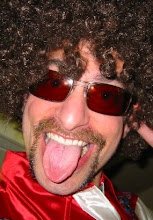Kevin M. Friedman, 93, Unknown to Most, Illustrious to a Select Few, Dies
By Rolo Tomasi
Published: March 4, 2071
Kevin M. Friedman, loving parent and profound friend, died last Friday at his home in Eureka, California. He was 93.
The official cause of death was cardiac arrest, although close family believe he suffered from a broken heart after the recent death of his wife, Lynn Friedman.
In 2008, Mr. Friedman developed an innovative financial derivative customized to insulate a homeowner from falling real estate prices. By patenting this invention and then licensing to a myriad of large financial institutions, Mr. Friedman briefly ranked in the Forbes 100 richest people in the world. His best friend, confidante and wife-to-be, Lynn, suggested that he use this prosperity to establish a foundation funding philanthropic initiatives championed by his former Miramonte High School and Stanford University and Graduate School of Business classmates.
“He always prioritized his family and friends above his personal projects because he derived great meaning from forging these intimate relationships in life,” said Corey Pigeon, lifelong friend. “There are 4 marriages and countless friendships that radiate from the nucleus of Kevin connecting people from his high school, college, and employer after business school.”
Mr. Friedman served on the board of a number of companies started by his contemporaries. During a time when most board members sought to pare down their responsibilities to minimize their liability, Mr. Friedman took an active role in serving as a fiduciary for all stakeholders. He also championed new legislation addressing the principal – agent problem resulting in managers acting in the best interest of the equity holders.
Mr. Friedman fell in love with golf in the latter stages of his professional career. During the long summers of Northern California, he would be a fixture at the local country club. “He made one hole-in-one and from then on Kevin was convinced he could become a scratch golfer and compete on the PGA Senior tour,” remarked Benton Williams, college roommate, successful entrepreneur, and fellow member of Bushwood Country Club. “Unfortunately, his ‘hole-in-one’ was actually a prank setup by a few of his good friends on a tee shot to a blind green. I better be careful because he’s probably up there plotting to get me back.”
Mr. Friedman will also be remembered for his passion to work with children in the local communities. “He was just as comfortable playing hopscotch with the kids as he was drinking a single malt scotch,” said John Gunderson, tavern owner in Eureka, CA. “In fact, he preferred hopscotch; he was always lightweight when it came to alcohol—though he thought he was Irish simply because his name was ‘Kevin.’”
In his twilight years, Mr. Friedman penned a weekly editorial column in his local paper, which was eventually picked up in the USA Today Friday Life section. Perhaps, his most celebrated article suggested that the quality of one’s life is best estimated by the variation of sight distance. By varying activities every twenty minutes, specifically an activity which would require one to focus on an object up close (e.g., reading the paper), then on something far away (e.g., child throwing a football), tend to rate the highest in quality of life surveys. Although his critics label his meanderings as “cryptic,” all agree that his perspectives were thought-provoking and generated a constant buzz.
“Kevin would have a smile on his face if he steered even a single person towards a more fulfilling life,” says Chris Kramer, the local barber. “His covert aim was to nudge people towards a sense of flow defined as the psychology of optimal thinking.” Mr. Friedman believed that we usually have less control than we want, but we always had full control over how we processed our dynamic interaction with our environs.
He is survived by his two children, Luke and Ann, 4 grandchildren, and 2 great-grandchildren.
In Mr. Friedman’s will, he stipulated that he would like to include his own final words as his last gasp to influence his companions—this request stemming from an epiphany in the revolutionary “Paths to Power” class taught by acclaimed Professor Roderick Kramer.
"My friends, we pledge to cultivate a world where all people are free to grapple with the mysteries of life unencumbered by external threats. We cherish the dynamic interplay with our environs and we seek to expand our universe to incorporate the knowledge of all cultures accepting the tension of divergent thought. Although we won’t all reach tomorrow, we trust that each one of leaves our indelible brushstrokes on the canvas of being—a vibrant mosaic blending the spirits of our ancestors with the fluidity of life."
Wednesday, March 1, 2006
A Time Capsule
Subscribe to:
Posts (Atom)

